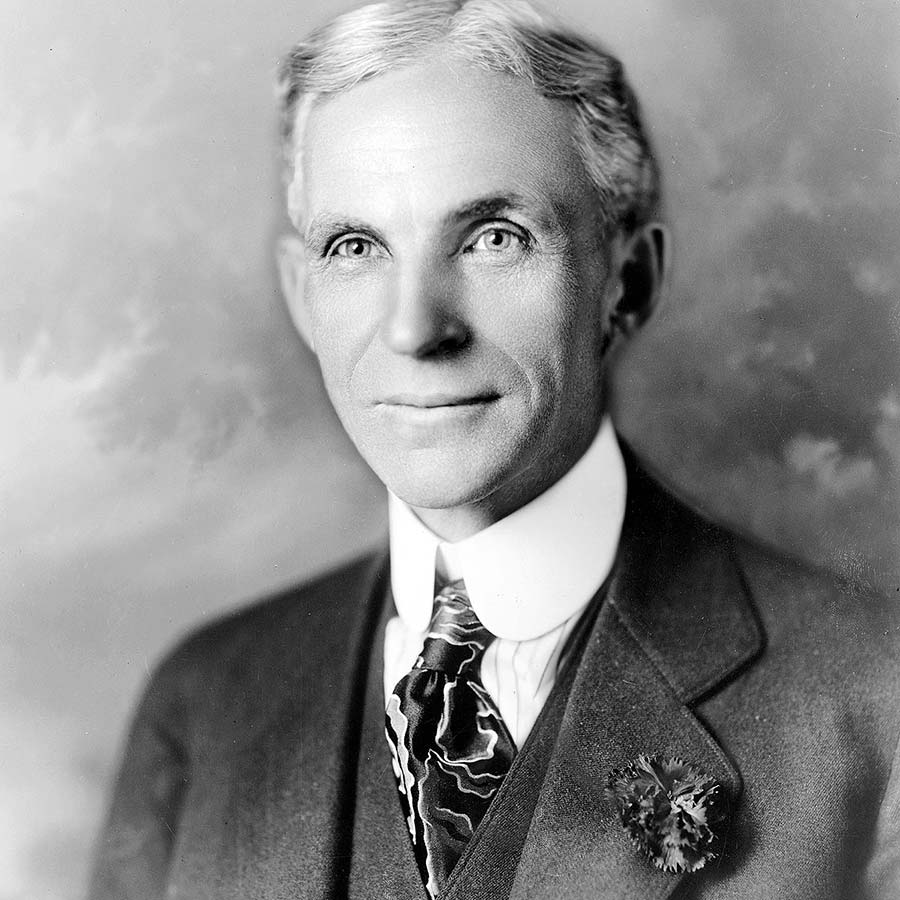The views expressed in our content reflect individual perspectives and do not represent the authoritative views of the Baha'i Faith.
When Henry Ford built the first moving automobile assembly line in 1908, the Baha’i teachings had already foreseen a labor revolution.

Henry Ford
Mr. Ford, the founder of Ford Motor Company, was the first American industrial titan to implement a five-day workweek. His peers criticized and even derided him, saying that his workers would only waste their increased free time by becoming lazy, degenerate and shiftless.
But Ford, a dyed-in-the-wool capitalist and the inventor of the production line, discovered that a shorter workweek actually increased productivity among his employees:
Leisure time, he observed, was a “cold business fact.” A well-rested worker was a more effective worker. And besides, an employee toiling at a factory from dawn till dusk, with no free time for road trips or joy rides, would never buy one of his cars. As Ford told a journalist, “It is high time to rid ourselves of the notion that leisure for workmen is either ‘lost time’ or a class privilege … The five day week is not the ultimate, and neither is the eight hour day. It is enough to manage what we are equipped to manage and to let the future take care of itself. It will anyway. That is its habit. But probably the next move will be in the direction of shortening the day rather than the week.” – from The World’s Work, by Samuel Crowther.
Even before Henry Ford launched his shortened work-week and influenced the rest of the world’s industrialists and their factories, Abdu’l-Baha spoke in 1907 and predicted the far-reaching impact of the labor revolution on leisure time, poverty and universal education:
You cannot understand now, how the labour saving machines can produce leisure for mankind because at present they are all in the hands of the financiers and are used only to increase profits, but that will not continue. The workers will come into their due benefit from the machine … So with the assurance of a comfortable income from his work, and ample leisure for each one, poverty will be banished and each community will create comfort and opportunity for its citizens.
Education will then be universal at the cost of the state, and no person will be deprived of its opportunity. – Abdu’l-Baha, as reported by Mary Hanford Ford in Star of the West, Volume 10, pp. 106-107.
So far, Abdu’l-Baha’s prediction has come true in many places around the world. Germany, Turkey, Argentina, the Czech Republic, most of the Scandinavian countries, and some states in the U.S. like New York now provide free college tuition for their residents.
In fact, Article 13 of the International Covenant on Economic, Social and Cultural Rights (ICESCR), the multilateral United Nations treaty signed and ratified by the overwhelming majority of the world’s countries, commits its signatories to work toward the right to free education for everyone. It ensures the right to free education at the primary levels, and encourages the progressive introduction of free education at secondary and higher education levels as well. The ICESCR, part of the International Bill of Human Rights, as well as the Universal Declaration of Human Rights (UDHR), all call for each of the world’s nations to provide universal and compulsory free education for every one of their citizens.
This underlying concept—that education should be made available to everyone—is a fundamental principle of the Baha’i teachings:
Baha’u’llah has announced that inasmuch as ignorance and lack of education are barriers of separation among mankind, all must receive training and instruction. Through this provision the lack of mutual understanding will be remedied and the unity of mankind furthered and advanced. Universal education is a universal law. – Abdu’l-Baha, The Promulgation of Universal Peace, p. 300.
When humanity adopts universal compulsory education, it will bring about a true revolution in the way we labor and earn our living. Can you imagine what a fully-educated populace could achieve?
















Comments
Sign in or create an account
Continue with Googleor